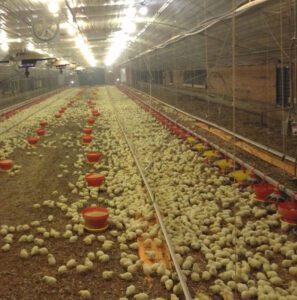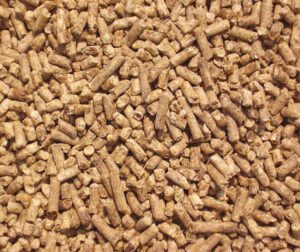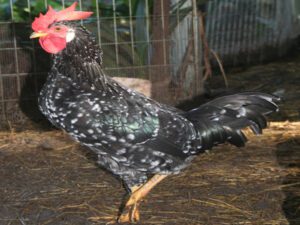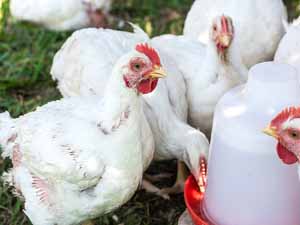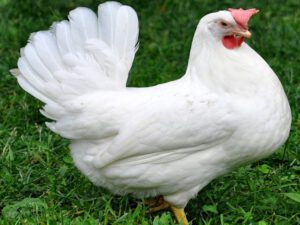Raising guinea fowl is fun and it is a low maintenance poultry bird. There are actually many advantages of raising guinea fowl.
The guinea fowls are unusual birds than most of the common poultry birds such as chickens, ducks, geese etc.
If you raise some guinea fowls in your farm, then they act as a guard (alerting you with lots of noise whenever a snake, wild animal or human stranger approaches).
Most of the people find this special feature of the guinea fowl as interesting. Although some finds this as a disturbing feature of the guinea fowl.
Raising guinea fowls can also be helpful for you for preventing insects and ticks from your farm.
Actually, guinea fowls love to eat ticks and it’s their favorite food. So, raising some guinea fowls can help you to make your property ticks free quickly.
Raising some guinea fowls can also be a great source of delicious and nutritious meat and eggs supply.
Mature guinea fowls require less care and they are low-maintenance poultry birds.
Guide for Raising Guinea Fowl
Raising guinea fowl in your backyard can be a great way for ensuring constant supply of eggs and meat.
Along with this you can also get rid of ticks from your property. And monitoring the activities of the guinea fowl is actually fun and enjoyable.
However, here we are describing about complete guide for raising guinea fowl.
Build a Coop for Your Birds
First of all, make a good and suitable coop for your guineas. This is the place where your guineas will spend most of their time (especially stay at night).
So, the coop or house must have to be safe and comfortable for your birds. Make the coop ready before bringing the guinea fowls home.
Guinea fowls are good flyers and they will escape if you do not keep them in an enclosed coop.
Like many other poultry birds, guinea fowls also require enough space to roam. It will be better if you can provide your birds with at least 4 square feet space (for each bird).
They will require more space if you do not plan on allowing them to roam freely within your property.
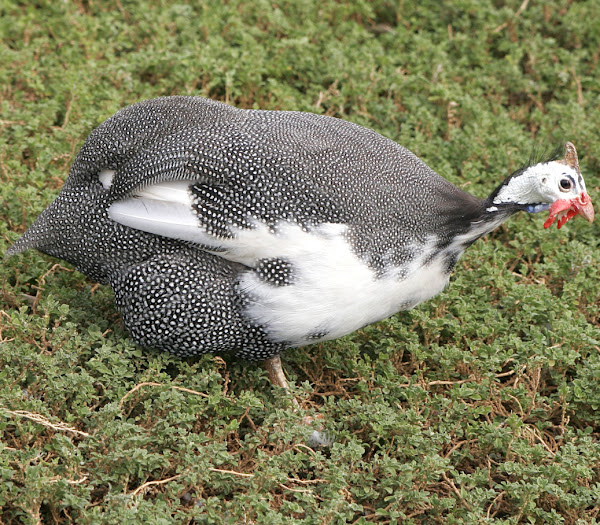
Ensure that their room is well ventilated. Keep bedding and roosting materials inside their house. And clean their house on a regular basis.
Purchase Guinea Fowls
Purchase birds after building a good house. First consider purchasing from your local breeders.
But if there are no breeder in your area, then consider purchasing from any of your local poultry feed supply store or any online sellers.
You can choose either keets or adult birds. But purchasing keets will be good, because it is much easier to tame the keets.
Feeding the Birds
After purchasing and bringing the birds home, you need to offer food and clean water to them.
Compared to many other poultry birds, feeding the guinea fowls is relatively easy.
Guinea fowls actually eat all types of feeds if they are allowed to roam freely.
But you can feed your birds with the easily available chicken’s feed if you can’t allow your birds outside.
Ensure enough supply of feeds for your birds throughout the day (as much as they need). And always provide them with sufficient clean and fresh water.
Additional Caring for Guinea Fowls
Generally, guinea fowls make their nests on the ground (although they like to try to conceal them by choosing areas with tall grasses).
Sometimes they also share nests with some other guinea hens and sometimes also share sitting duties.
If you keep your guineas inside, don’t forget to provide them with nesting materials.
Know the Downfalls
Along with the advantages mentioned above, there are also some downfalls of raising guinea fowl.
So, you need to keep in mind about these downfalls when determining whether or not these birds are right for you and your property.
Guinea fowls are noisy, so your neighbors might not appreciate your new flock. Guinea fowls are also not as tame as chickens.
And they are sometimes very hard to catch if you let them to roam freely.
However, each animal or bird has it’s advantages and disadvantages at the same time. Raising guinea fowls is not an exception.
You need to consider both advantages and disadvantages of raising guinea fowls before starting. Good luck!

